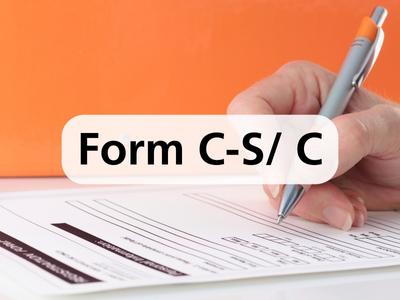Understanding Form C-S/C
 Summary: Form your company needs to fill before paying corporate tax.
Summary: Form your company needs to fill before paying corporate tax.
The Form C-S and Form C are Singapore’s Corporate Income Tax Returns that companies use to report their annual income to the Inland Revenue Authority of Singapore (IRAS). Every Singapore company must submit either one, even if they’re not making a profit. The deadline is November 30 each year. A company representative or a tax agent authorised through Corppass under “Corporate Tax (Filing and Applications)” can e-file these forms. The Basic Corporate Tax Calculator is a helpful tool for creating tax computations and schedules when preparing these returns.
Simplifying Tax Returns with Form C-S
Introduced in YA 2012 to ease the process for small companies, Form C-S is a simplified version of Form C, requiring fewer details and document submissions – unless asked explicitly by IRAS.
So, who’s eligible to file Form C-S? It’s for Singapore-incorporated companies earning $5 million or less annually and taxed at the corporate standard rate of 17%. However, the company shouldn’t be claiming Carry-back of Current Year Capital Allowances/Losses, Group Relief, Investment Allowance, Foreign Tax Credit, and Tax Deducted at Source for that year.
Form C-S (Lite) has been designed to make e-filing easier for certain small companies. It comprises only six basic fields. Companies eligible to file Form C-S with annual revenue of $200,000 or less may choose to file Form C-S (Lite).
Introduction to Form C
Every other company that doesn’t qualify to file Form C-S must use Form C. This form requires submission of the company’s financial statements, tax computations and relevant schedules in addition to the form.
Consequences of Late Filing
Please be aware that submitting Form C-S/C late could be costly for your business. If you fail to meet the deadline, IRAS will issue a Notice of Assessment (NOA) based on the estimated chargeable income submitted earlier. If a company disputes the NOA, they can object within two months of the NOA’s date, together with their Tax Returns (Form C-S/C). However, companies are still obligated to pay the tax estimated by IRAS within a month from the NOA date, even if they object to it. Sometimes, IRAS may apply penalties for late filing or even summon company officers to court. If a court summons is issued, an officer must appear and may face additional fines.


